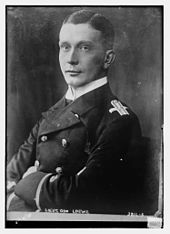 09-16-15, 01:33 PM
09-16-15, 01:33 PM
|
#335
|
|
Gefallen Engel U-666
Join Date: Jul 2013
Location: On a tilted, overheated, overpopulated spinning mudball on Collision course with Andromeda Galaxy
Posts: 27,997
Downloads: 22
Uploads: 0
|
 murderous zepplins and wicked trawlers
murderous zepplins and wicked trawlers
The next morning a British fishing vessel, The King Stephen sighted the L 19's distress signals. When the captain and crew arrived, they found Germans aboard the sinking ship: the captain refused to rescue them and left them to die. As the weather worsened, Zeppelin crewmembers wrote personal messages and an account of what had happened before placing the notes in several bottles and tossing them into the roiling sea. When the Royal Navy made a search of the area, no airship or crew were found. It was four months after the incident when a crewman’s body washed ashore, and six months until bottles began washing up on shore to tell the story.  Royal Navy ships made a search of the area but they found no trace of the Zeppelin or her crew. The body of one of the Germans washed ashore four months later at Løkken in Denmark. In 1964, a journalist researching the incident checked Admiralty archives and interviewed two surviving members of the King Stephen's crew. This revealed that Martin had indeed been fishing in a forbidden zone and had initially given the naval authorities a false position for the Zeppelin in order to conceal this, making the Royal Navy search for the airship futile. Martin's own account:A Grimsby steam-trawler skipper, William Martin, said that before daybreak on 2 February he saw lights flashing in the distance. "I went towards the lights and discovered a huge mass of wreckage on the water," he told a Times correspondent. "I stood by and at daybreak found the wreckage was that of a large German airship bearing the identification mark L-19. The cabins were under water and so was a large part of the envelope, but a large portion was still above. Royal Navy ships made a search of the area but they found no trace of the Zeppelin or her crew. The body of one of the Germans washed ashore four months later at Løkken in Denmark. In 1964, a journalist researching the incident checked Admiralty archives and interviewed two surviving members of the King Stephen's crew. This revealed that Martin had indeed been fishing in a forbidden zone and had initially given the naval authorities a false position for the Zeppelin in order to conceal this, making the Royal Navy search for the airship futile. Martin's own account:A Grimsby steam-trawler skipper, William Martin, said that before daybreak on 2 February he saw lights flashing in the distance. "I went towards the lights and discovered a huge mass of wreckage on the water," he told a Times correspondent. "I stood by and at daybreak found the wreckage was that of a large German airship bearing the identification mark L-19. The cabins were under water and so was a large part of the envelope, but a large portion was still above.
"On a raised platform on top of the envelope were seven or eight members of the crew, who hailed us in broken English saying: "Save us, save us! We will give you plenty of money'. An officer offered gold, but as he did so, 20 crew appeared."
The skipper of the unarmed trawler felt it would be unwise to take the Zeppelin's men aboard, as they outnumbered his own crew, so he went off and reported the incident to a British naval vessel. As he sailed away the Germans were shouting "Gott strafe England!" but a gale then got up and the airship probably foundered.'" The King Stephen never again sailed as a fishing vessel. After her return, she was taken over by the Royal Navy for use as a Q-ship, under the command of Lieutenant Tom Phillips RNR. She was sunk 12 weeks later, on the 25 April 1916. An official German communiqué, reported by the New York Times, stated she had been sunk by one of the German vessels taking part in the Bombardment of Yarmouth and Lowestoft. The King Stephen, now fitted with a 3 pounder Hotchkiss gun, had fired on and pursued a surfaced U-boat, but then inadvertently steamed directly into the path of the returning German fleet. She was sunk by the torpedo boat SMS G41 and her crew taken prisoner. The King Stephen's name was notorious to the Germans and Lt. Phillips was charged with war crimes upon reaching Germany. However, the charges were dropped and he and his crew were treated as normal prisoners-of-war after a photograph of William Martin was published in a British newspaper and the Germans realized they held another man. William Martin himself died of heart-failure in Grimsby, slightly over a year after encountering the L 19, on the 24 February 1917. He had received a large numbers of letters, including both letters of support and, reportedly, hate-mail and death-threats. LT Odo Loewe's last message in a bottle found six months later:
"With fifteen men on the top platform and backbone girder of the L 19, floating without gondolas in approximately 3 degrees East longitude, I am attempting to send a last report. Engine trouble three times repeated, a light wind on the return journey delayed our return and, in the mist, carried us over Holland where I was received with heavy rifle fire; the ship became heavy and simultaneously three engines broke down. 2 February 1916, towards one o'clock, will apparently be our last hour. [wiki]
— Loewe  http://www.bbc.co.uk/programmes/p02069kp http://www.bbc.co.uk/programmes/p02069kp
__________________

"Only two things are infinite; The Universe and human squirrelyness; and I'm not too sure about the Universe"
|

|

|